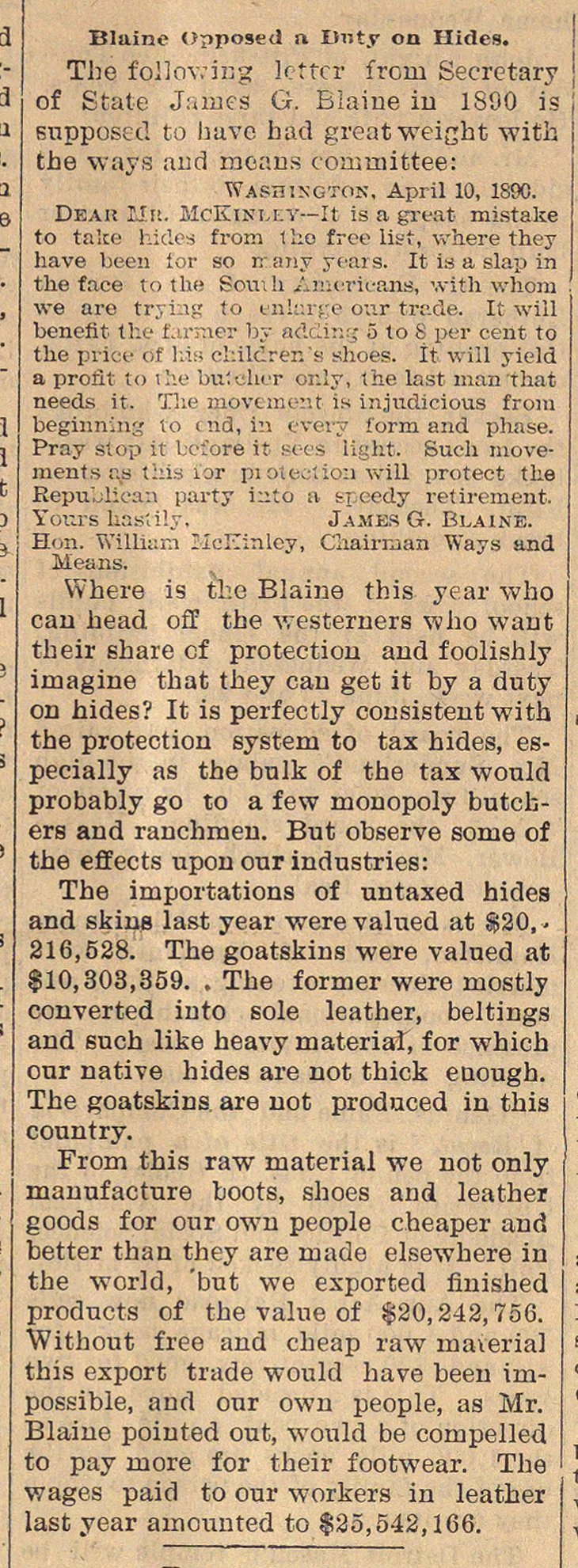Blaine Opposed A Duty On Hides

Tbe foilov.'ing letter freru Secretary of State James G. Bïaine in 1800 is supposec! to havo bad greatweight with the ways and mcans coruuiittee: Washington, April 10, 1S9C. Deaii BIn. McKlNtEY- It is a great mistake to take hielos frorci tho free list, wh.ereth.ey have been íor so ir.any years. It is a. slap in the face to the Souili Americana, with whöm we are tryiag to enlürge our trede. It will benefit the farmer bj adding 5 to S per cent to the price of kis ehildren's shoes. it will yield a profit to the buielïcr or.Iy, the lost man that needs it. The inpvement is injudicious from beginning to chd, ia tvety form and phase. Pray stop it beforè it sees iight. Sucli movements op this ior pioteciioa will protect tlie Eepu;_,!:c:r.i party i:ito ;t speedy retirement. Tours Iiasíüy. James G. Blaine. Hon. T"ilh::m IIcEinlcy, Chairman Ways and Means. Where is the Blaine this year who caii head off the vresteruers who want their share cf protectiou and foolishly imagine that they eau get it by a duty on hides? It is perfectly consistent with the protection system to tax hides, especially as the bulk of the tax would probably go to a few monopoly butchers and ranchmen. But observe sonie of the effects upon our industries: The importations of untaxed hides and skins last year werevalued at 20,216,528. The goatskins were valued at 10,303,359. . The former were mostly converted iuto sole leather, beltings and such like heavy material, for which our native hides are not thick enough. The goatskins are not produced in this country. i rom this raw material we Jiot only manufacture boots, shoes and leather goods for our owu people cheaper and better than they are made elsewbere in the world, 'but we exported finished products of the valué of $20,242,756. Without free and cheap raw material thís export trade vvould have been impossible, and our own people, as Mr. Blaine poiuted out, would be corupelled to pay more íor their footwear. The wages paid to our workers in leather last year auionuted to $35,542,166.
Article
Subjects
Ann Arbor Argus
Old News